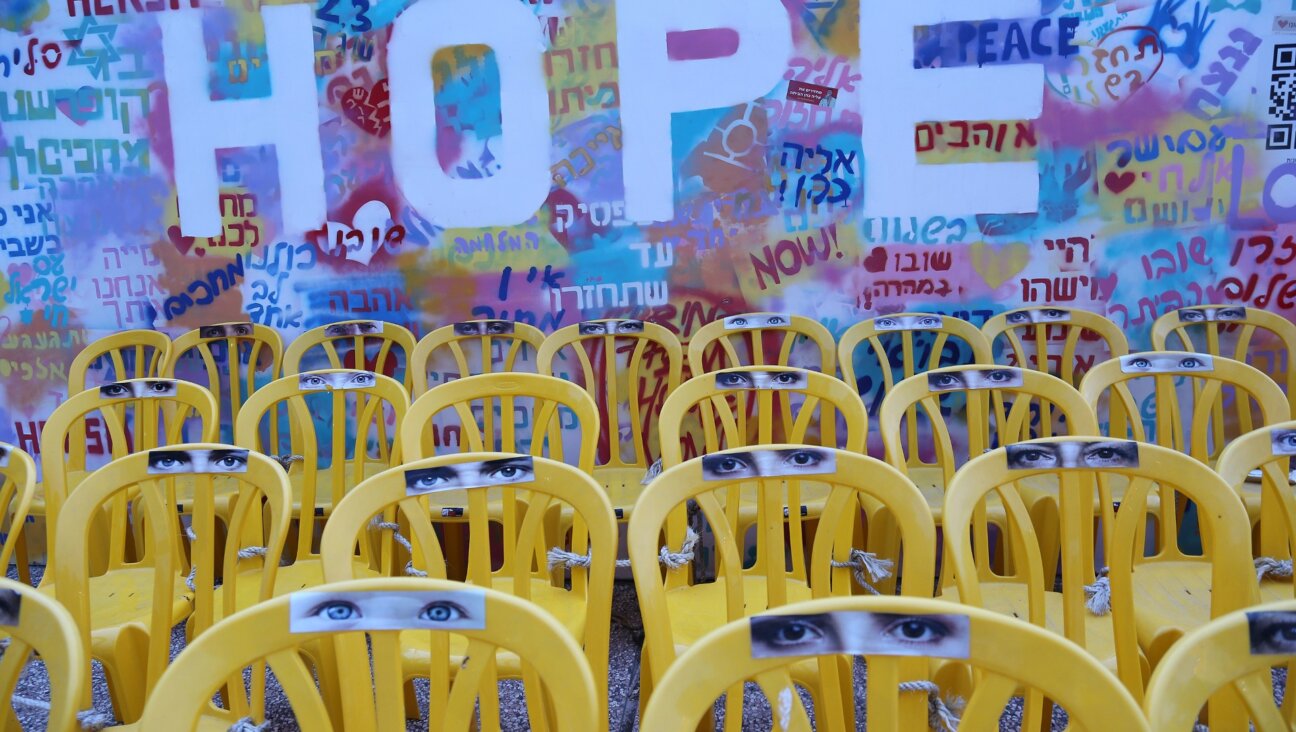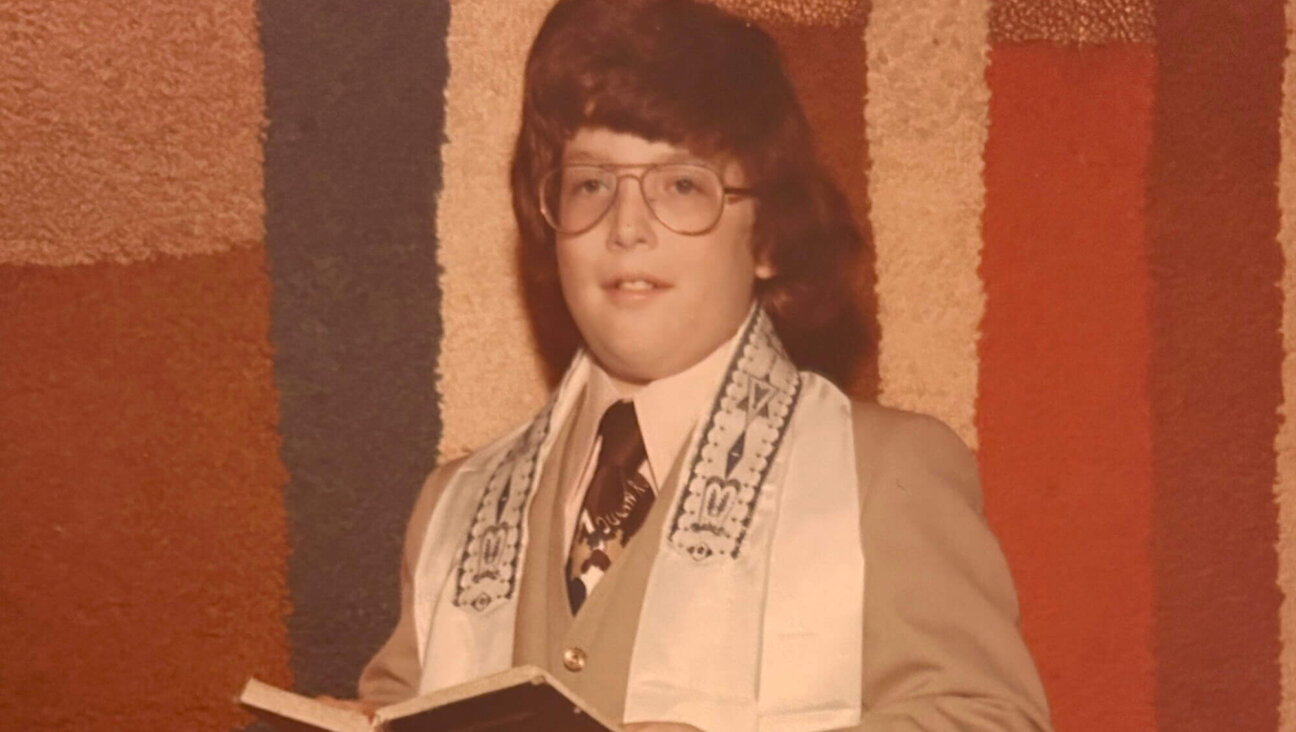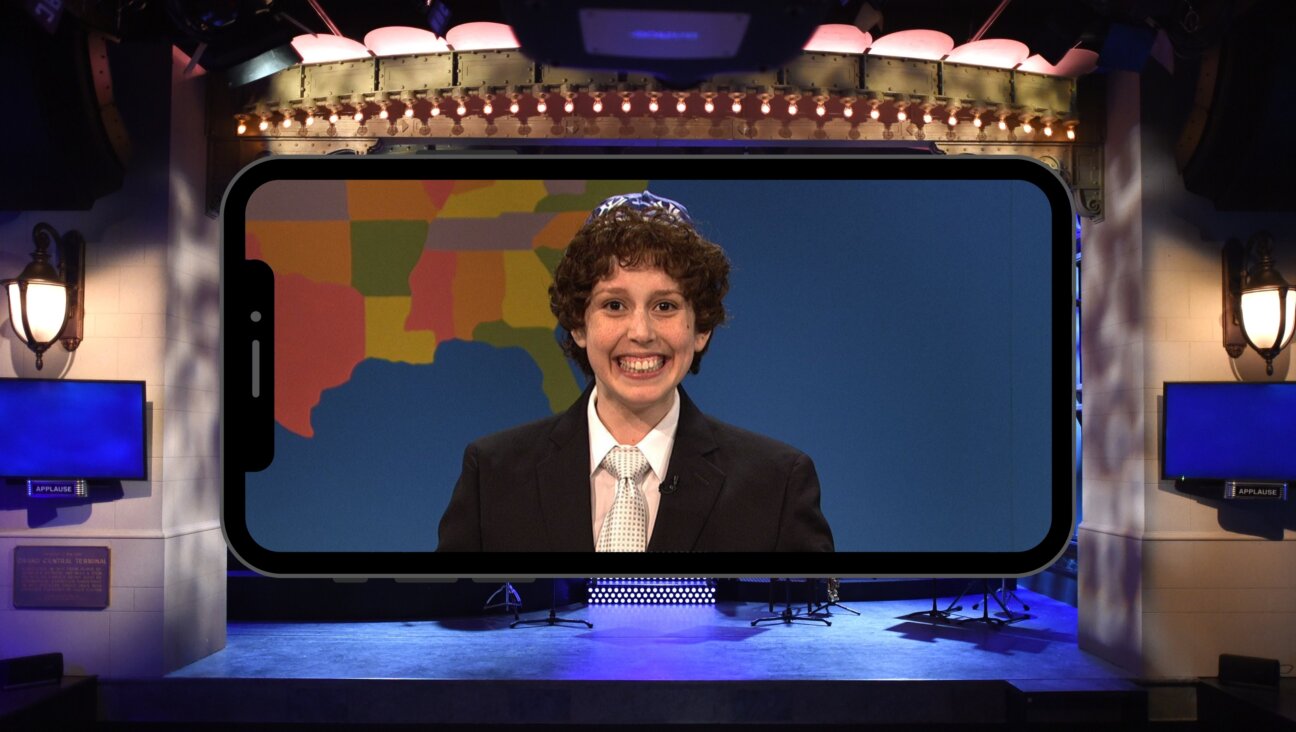Star of the Show That Inspired ‘Homeland’ Discusses How TV Affected Reality in Israel

Graphic by Angelie Zaslavsky
“Prisoners of War,” the Israeli TV drama that inspired “Homeland,” will be released on DVD in the United States on July 8 — and the timing couldn’t be better. “POW” concerns three Israeli soldiers who finally get to return to their families after 17 years in captivity, only to discover that life in the public eye is its own sort of prison. It’s an issue that’s recently been in the news, particularly here in the U.S., where American soldier Bowe Bergdahl was freed from Taliban captivity by means of a controversial prisoner swap.
Adi Ezroni, an Israeli actress and producer known for her documentary work on child trafficking, plays one of the lead roles in “POW”: Yael Ben-Horin, the sister of a captured soldier who is presumed dead but who continues to visit her in ghostly apparitions. (We soon find out that he’s alive and, like Nicholas Brody of “Homeland,” questioning his loyalty toward his country.) Ezroni sat down with the Forward to talk about “POW,” “Homeland,” and how each show shapes the public conversation about real prisoners of war.
Sigal Samuel: Before “POW” was released, there was an uproar in the Israeli media. The public didn’t want you to touch this subject while a real-life Israeli soldier, Gilad Shalit, was in captivity. Then everyone fell in love with the show. Why?
Adi Ezroni: You fear what you don’t know. The biggest fear for people was how such a sensitive subject was going to be handled. Once they saw that it was handled with integrity and knowledge, then it was a double whammy: It had such a strong anchor in reality, and it allowed people to deal with the subject in a way that they wouldn’t have otherwise.
In the DVD’s special features, your co-star Ishai Golan says “POW” “contributed enormously to the release of Gilad Shalit and to the whole public opinion about prisoners of war.” Do you agree?
Definitely. Gilad Shalit was already in everyone’s hearts, but having such a highly rated TV show meant people were talking about it on a daily basis. It propelled and energized the campaign to release him. And then when he was released, it allowed a much more mature way of welcoming him back, in terms of both the general public and the media.
After broaching the topic of what happens to prisoners when they come back, after seeing the difficulties of reintegration and rehabilitation — things that were never really discussed in Israel before — there was an added respect for their privacy. There could’ve been a huge media frenzy, but rather than gossip and paparazzi, it almost felt like, “Okay, we just went through this fictionally, and here it is happening in reality — and we know how to deal with it better.”
With prisoner swaps, there’s always a debate over whether the price a country has to pay is worth it. Did “POW” impact that debate?
The show definitely impacted the discourse. But in Israel, because it’s a country that’s smaller than New Jersey, there’s already a very personal connection to the prisoner. With Gilad Shalit, you feel like you know his family. You are his parents, you are his sibling. The face of the prisoner is much more a part of your life. Here [in the United States], I don’t think many people know how many [American] POWs there are. I don’t think people knew who Bergdahl was before he was released.
Were you surprised by Americans’ reaction to Bergdahl’s release — how some accused him of being a defector? Would Israelis have reacted that way?
It seemed politically charged — like it was about whether you were pro-Obama or anti-Obama. In Israel, it’s first and foremost about the family receiving their child back. To say that because [Bergdahl] left his post for whatever reason, he should be left behind — to me that’s a very aggressive point of view.
If Americans had been watching “POW” instead of “Homeland,” would they have reacted differently to Bergdahl’s release?
“Homeland” is great entertainment, but not necessarily reality — it’s glossier. It definitely played up the question of what Brody’s loyalties are. “POW” erred more on the side of the real. Only in Season 2 do we broach that [question of loyalties]. It’s really much more of a character drama.
“Homeland” showed how when you focus on the investigation and take the investigator as the main character, the whole format does a 90-degree shift. The eyes that you’re looking through are the investigator’s. In “POW,” the eyes that you’re looking through are the prisoners’. And that matches the American reaction of looking at Bergdahl through investigators’ eyes versus the Israeli reaction of looking at Shalit through prisoners’ eyes.
Did the decision to make “POW” a character drama stem from the fact that Israeli film budgets are notoriously tiny compared to American budgets? Were you hemmed in by budgetary constraints?
Actually, a lot of good TV is coming out of Israel because of budgetary constraints — you can’t do the big explosions, so you do good character pieces instead.
Would you say “POW” presents the characters of defectors in a more sympathetic light than “Homeland”?
Well, in “POW,” you see [Yael’s brother] Amiel through the eyes of his sister, who loves him. You see his childhood. But in “Homeland” you meet Brody as he is. So the way he’s presented off the bat is more enigmatic than Amiel.
In real life, are you similar to the character of Yael?
Yael is a very different character from who I am in real life. I’m much more extroverted and talkative, and Yael is in this faraway bubble. When she’s around people, she hears them, but through a fog.
Your character and the lead character of “Homeland,” Carrie Mathison (Claire Danes), both struggle with mental health issues. When “Homeland” was criticized for its depiction of bipolar disorder, did you worry about how your portrayal would be received?
I think bipolar disorder can attract much more fire than depression. Yael suffers from melancholy — a film over her life — but the fact that she sees and speaks to her brother doesn’t impact her public responsibility, her job. So in that way I think it was probably much easier for me.
Also, with Carrie, her mental state is not a result of this specific situation [with Brody]. It’s just something she has. And though you want to be sympathetic to it, it conflicts with what you want her to figure out in the plot. Whereas my character’s state is a result of what happens to you as a sibling — and as a country — when something tragic like this happens.
Sigal Samuel is the Forward’s deputy digital editor.
























